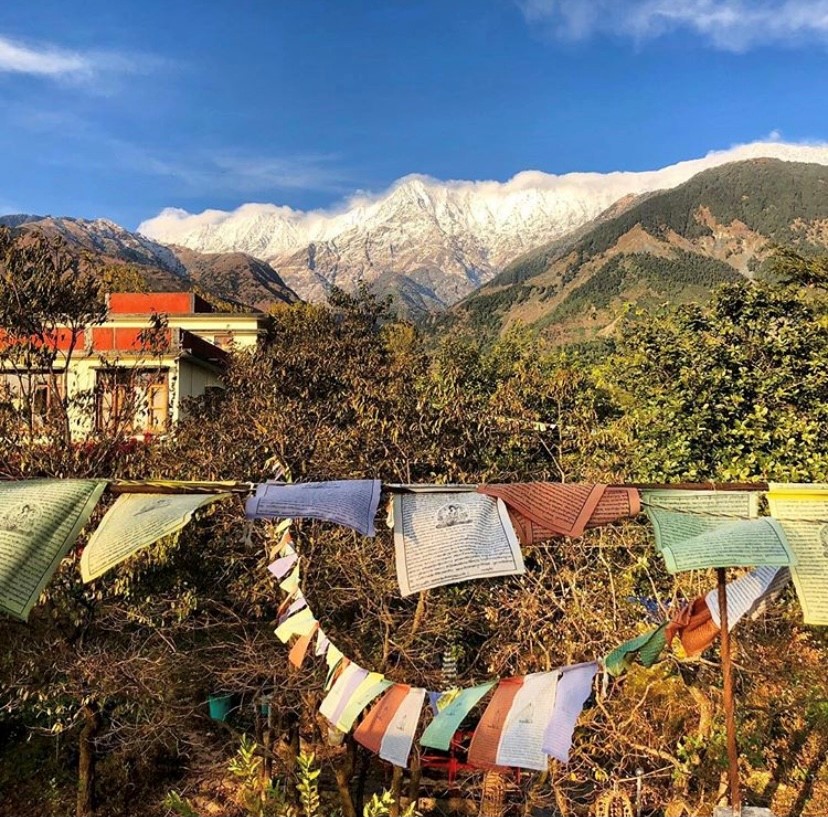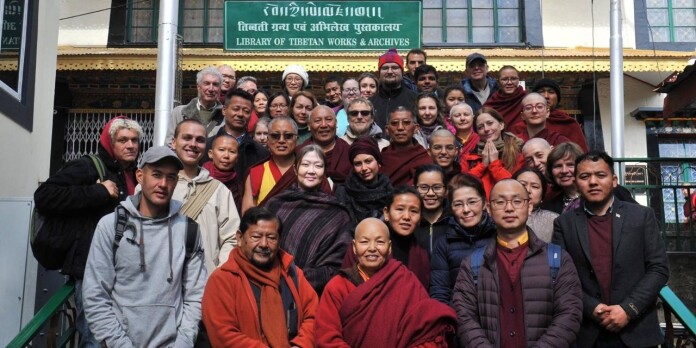Our contributor, Erica—a PhD student in Buddhist Studies, shares her experiences of studying Tibetology in India. The article sheds some light on doing studies related to Asian culture. Some of you who are keen to know how it was like to study in India, please check it out!
***
Continuing your studies in Germany is not always a smooth ride; there are lots of processes and challenges that you have to go through. These include collecting information about universities in Germany; finding the most suitable program for you; looking for a professor who is willing to be your supervisor; completing all the required documents; making your motivation letter; and the list goes on. Some say the hardest part of continuing your study in Germany is during the application stage, while others say that the real challenge begins when you are already registered as a student. As for me, I had prepared my research proposal long before I decided to do my PhD in Germany. Before I applied, I had to take part in a German Language course and my application preparation took around 1.5 years.
Currently, I am enrolled as a PhD student in Buddhist Studies at the LMU Munich. The PhD program in Buddhist Studies especially in Tibetology is designed to be finished in three years. The scientific study of Tibet looks back on a long history of research. Tibetology deals with the study of the religious and cultural history of Tibet from its beginning to the present.
My decision to take this PhD program led me to Dharamshala, India—McLeod Ganj to be exact. McLeod Ganj was the best place for me to get closest to Tibetan experience. The place is really unlike anywhere else in India. Besides home to His Holiness Dalai Lama, it is often referred to as “Little Lhasa”, in which much of the population is made up of Tibetan refugees.

I packed not only my luggage but also my feelings, my thoughts, and my dreams. I left my country, Indonesia, in February 2019 to go to India. Getting on the plane, a ray of joy touched my heart and I suddenly felt light, like a feather, flying across the blue sky wherever the wind took it. It was the smartest step I’ve ever taken, buying myself that ticket to India.
Let me first say, I do not think a life in India is for everyone. But, I’m overwhelmed with a sense of gratitude for what I’ve experienced so far, and also a trust that there is more to come when I reflect on more than one year time I’ve spent there. Looking back at the time I’ve spent at Dharamshala, perhaps the most enjoyable, yet challenging, aspect of my studies has been learning the Tibetan language.
During February 2019–December 2019, I stayed in Dharamshala and took my first Tibetan course in Library of Tibetan Works and Archives (LTWA). I spent 4 months in Casual Tibetan Course. Besides formal course, I took a private course as well with a native speaker three times in a week.
While I stayed in India, there were many things to do and my daily activities were quite interesting. In the morning, I took classes around 7–11.30 a.m. and read around 3–4 p.m. while in the evening I wrote papers. I went to Tsuglakhang (main temple of His Holiness Dalai Lama) to read, study and practice almost everyday. Sometimes, reading books from our cozy library’s vast collection of Buddhist worked. And I had spent quality time with the eclectic group of people who studied there as well.
Apart from academic stuffs, I also managed to spend a lot of time outdoors as well, for example, doing hikes to nearby places like Triund, Bhagsu Waterfall, Bir, and letting my skin soaked up all that high-altitude sunlight we got there.


After 4 months in LTWA, I felt not much progress in my language skill, then I moved to Nunnery in Lower Dharamshala. I took another Tibetan Course for 4 months in Thosamling Nunnery.
During that first year, it was difficult for me to have fun while studying. Not only that, I also felt difficult to find a right place to study in the beginning. One of the ills of the modern institution of education is to place too much importance on “understanding” during the learning process. This is particularly true in language classes. Instead, I would encourage you to try to see how much you do know instead of shutting down or being overwhelmed with how much you are missing. If you focus on what you do understand, you’ll be able to work with it. If you focus on what you’re missing, you’ll just stress yourself out.

Learning languages has always been a hobby of mine, however, I found it both challenging and interesting in my experiences of studying Tibetan language. I have been studying both colloquial and Classical Tibetan Languages so far. During my one year of study, I found learning Tibetan requires enthusiasm and diligence to acquire proficiency in both colloquial and literal fields. In each chapter, student encounters new vocabulary which needs memorizing, correct reading and pronunciation. Interestingly, the grammatical structures in Tibetan language is unlike English (it is just so different!). So, it is going tougher and tougher.

On the other hand, I was impressed whenever I saw my other friends who were so good in studying despite being a native English speaker—given the fact that Tibetan language is so different to English. And I always became motivated whenever I heard translators’ instant translations from the Lopon’s, Khenpo’s, and Rinpoche’s talk and teachings. That was such an inspiration of how hard work and diligence paid off!
Although I still have much to learn, as I have set goals for myself and felt like I have put forth a respectable amount of efforts in my studies, I feel like I am making decent progress. With this pace, I think my aspirations are well within reach.
While there are many students who are understandably anxious and nervous about studying Tibetan, I try to do my best to encourage them. Because I firmly believe that, with very few exceptions, everyone can master a new language and there is nothing inherently difficult about learning Tibetan. It is just different from the Western languages we are used to and nothing more. It is far from impossible to become competent in the Tibetan language and there are many steps one can take in order to improve studies, given the facts there are inevitable challenges involved with the study of any foreign language,
After almost one year in Dharamshala, I felt that I didn’t have much progress in the Tibetan language. Hence, I decided to go back and search for another place where it is more suitable for my learning process. I decided to go to Nepal for my next trip where I plan to live with a Tibetan family. Perhaps, that would be one of the best methods for improving my conversation skills.

If you are new to Tibetan language or plan to study in India, German or Nepal in the near future, I hope I have been able to offer some kind of reassurance. If we have the right attitude and effort, our success is guaranteed. Of course, there will be mistakes and challenges, but if anything, those are signs of progress because it means that we are trying; and in trying, we will succeed. We must also take joy in our effort and progress, each step of the way leads to new insights and experiences which can open our mind to worlds we never knew existed.
All photos are provided by the author.








